Working with pigments is just as easy as working with tinting pastes. The pigments only have to be pre-mixed with a little oil before mixing into our oil based varnishes and waxes. These short instructions will make it easier to start tinting with pigments.
We use pigments because:
- they can be used universally (all Kreidezeit pigments can be mixed with each other)
- they can be stored indefinitely
- they are alkali-resistant
- genuine earth pigments have a special charm
- no preservatives or other additives are required
We do not produce colour pastes because they are not in line with our company philosophy. We do not use any preservatives or additives in our production which have to be used in the production of conventional colour pastes.
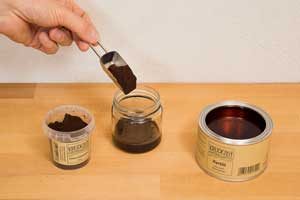 1. Give a part of the oil into a small container and add the required amount of pigment.
1. Give a part of the oil into a small container and add the required amount of pigment.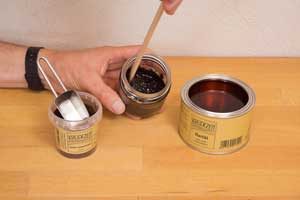 2. Mix the pigment well with a stirrer. A viscous mass is to be produced.
2. Mix the pigment well with a stirrer. A viscous mass is to be produced.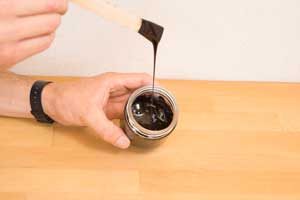 3. Stir vigorously to obtain a homogeneous consistency.
3. Stir vigorously to obtain a homogeneous consistency.
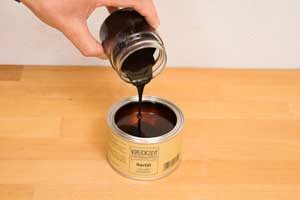 4. Then add the mixture to the required amount of oil.
4. Then add the mixture to the required amount of oil.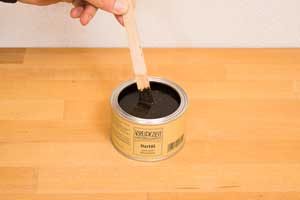 5. Stir again thoroughly.
5. Stir again thoroughly.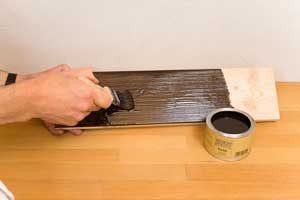 6. The hard oil was pigmented strongly, since some of the pigments are also rubbed off when wiping off the surpluses. Small amounts of pigment can be used in the interior. In exterior areas, a minimum percentage of pigment is required as UV protection. See product information.
6. The hard oil was pigmented strongly, since some of the pigments are also rubbed off when wiping off the surpluses. Small amounts of pigment can be used in the interior. In exterior areas, a minimum percentage of pigment is required as UV protection. See product information.
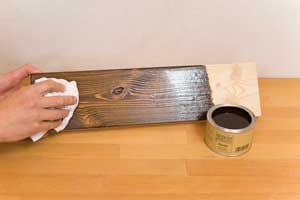 7. The oil must be absorbed for at least 20 minutes. Then rub off any oil that has not been absorbed (excess oil) with a lint-free cloth.
7. The oil must be absorbed for at least 20 minutes. Then rub off any oil that has not been absorbed (excess oil) with a lint-free cloth.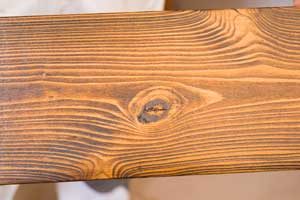 8. We brushed the wood before the treatment to get a beautiful wood grain. An even finish is achieved by applying a second thin layer of oil, which is also rubbed off with the cloth.
8. We brushed the wood before the treatment to get a beautiful wood grain. An even finish is achieved by applying a second thin layer of oil, which is also rubbed off with the cloth.

